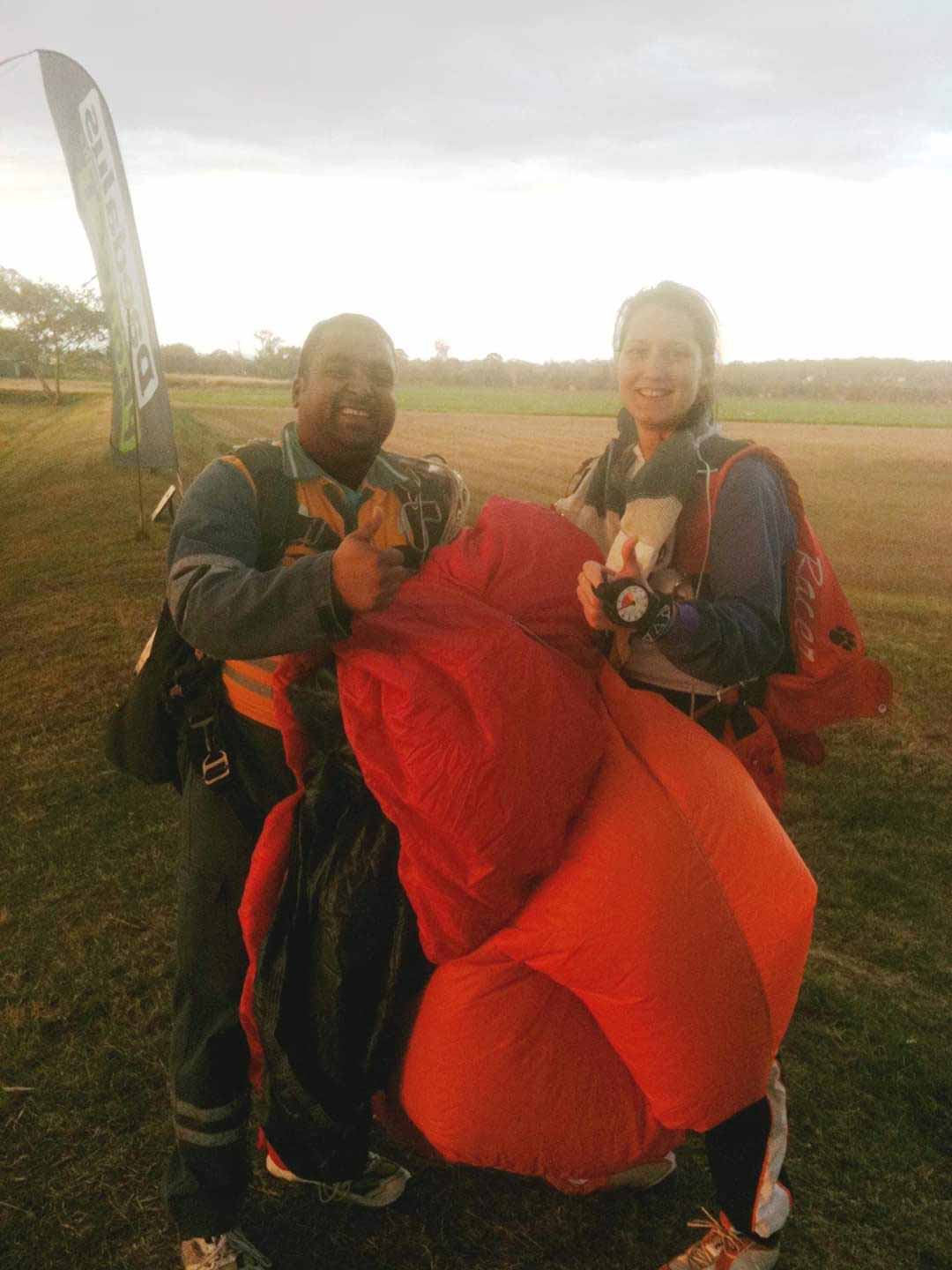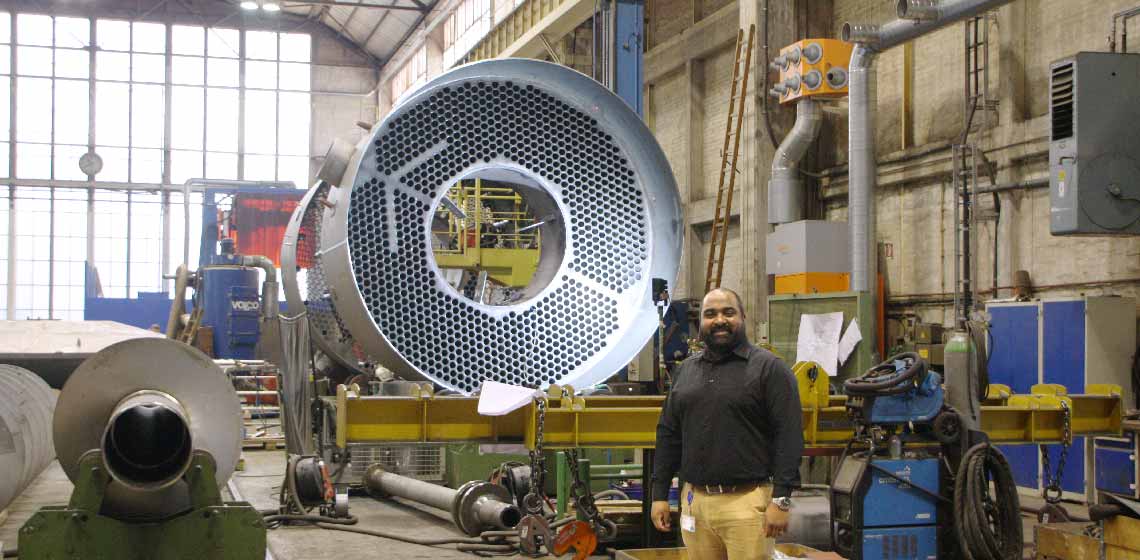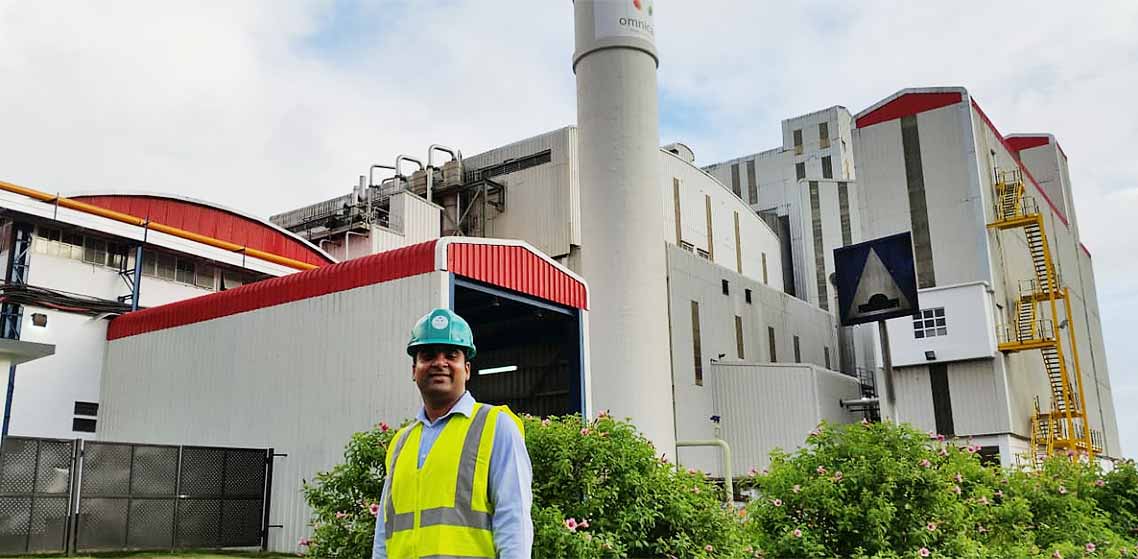Dr Omkar Thaval works as a Senior Technologist in the Engineering department at BMA AG in Braunschweig. In this interview, he talks about his unusual career path, why he is so passionate absout sugar technology, and how his colleagues in Braunschweig helped him settle in.
01.07.2020
Crossing the globe
India, Brisbane, Braunschweig: Dr Omkar Thaval is now at home at BMA
Omkar, how come you left India to go to Australia and then to BMA in Braunschweig?
Well, that’s quite a long story, but I’ll try to make it short (laughs). The starting point was my Bachelor’s degree in Sugar Technology, which I completed in India. With that qualification, I was awarded a Sugar Technology & Innovation scholarship, to pursue a Master’s degree in Australia – Brisbane, to be precise. After completing my Master’s in sugarcane milling, I went on to do a PhD in Robert evaporator design. At the end of my doctorate when I was writing my thesis, I joined a sugar consulting firm in India as Manager – Sugar Technologist. I worked there for two years, providing consulting services to Indian and Australian sugar mills. In early 2018, I was in contact with BMA about a role in the Engineering department. However, it wasn’t until the last quarter of 2018 that I concluded my existing projects and commissioning activities and commenced my role at BMA.
How come you’re so interested in the sugar industry?
My father is a businessman. He used to own land in the village where he was born – land where sugar cane is grown. He was also a major shareholder in the co-operative sugar factory located in the district, that’s what got me interested in the sugar industry. Later I asked myself: why not focus on this field in my studies? I decided to go for my degree because it offered many exciting topics. And it was definitely the right decision.
Were there any other options then?
Among my peers, electronics engineering and IT were the most popular subjects. But I always knew that I would specialise in sugar technology, and I’ve never regretted it. Over the past years, during my Bachelor’s, Master’s and PhD studies, and later as a consultant and project manager, I’ve focused largely on the process of raw sugar, plantation white sugar and refined sugar manufacturing. To be honest, I haven’t done much besides working with sugar in the past 11 years (laughs).
How did you manage to specialise so well?
Well, I’m more of a hands-on man than a theorist. In Australia, I had the opportunity to work in applied engineering. Under my mentors at the time, I worked on research and consulting projects on sugar factory processes and equipment: milling and crystallisation, and evaporators and centrifugals. This combination of research and consulting became a core part of my work in the sugar industry over several years and continues to this day. But let’s get back to your question: I specialised by dealing with specific sugar technology problems and solving them using different approaches.
What were your impressions of Australia?
All in all, I lived in Australia for six years. I travelled a lot on the continent, especially between Cairns and Brisbane. And my PhD studies took me around quite a bit, particularly inland, where sugar cane is grown. Often I took this opportunity to talk to millers and farmers. I was particularly impressed by the fact that work in Australia is very solution-oriented. And what I found very enjoyable was collecting the data for my PhD thesis. At that time, I lived and worked on the grounds of a cane sugar factory during the crushing campaign, four months in all. It was hard work, but also very interesting. I got to know many employees well, it’s an experience I really wouldn't want to have missed.
We’ve talked a lot about India and Australia now. So how did you end up at BMA in Germany?
After six years in Australia, I needed to give it a shake and do something different. So I left my comfort zone and took a look around the job market. My thesis was as good as finished, so I initially went back to India and worked as a consultant and project manager for a sugar consulting firm. I was already familiar with BMA from my studies: we had carried out tests evaluating the performance of centrifugals, and those machines were made by BMA. Plus, I’d met Dr Andreas Lehnberger, the Head of Research and Development at BMA, in 2015.
How did you meet?
We were both attending a conference in Mauritius on mass and heat balances, and discussed several topics, especially falling-film and rising-film evaporators. BMA always stayed at the back of my mind, until, in 2017, I applied for a vacancy that was advertised online. In the same year, I bumped into Andreas Lehnberger again, at a conference in Australia. After my application, I was interviewed via Skype, and then I flew to Braunschweig for a personal interview. I’ve been working for BMA in Braunschweig since October 2018 and I’m very happy here.
What are you working on at BMA?
In a nutshell: as a Senior Technologist at BMA, I am responsible for improving our products. I work on mass and energy balances for refineries, and on optimising sugar refinery processes and equipment. Another one of my responsibilities are consulting services to cane sugar factories and sugar refineries. So quite a broad range of tasks, as you can see.
What have you learned since joining BMA?
As a sugar technologist, my work focuses largely on optimising the sugar process. I have worked in several unit operations in the sugar factory and specialised in milling, evaporators and crystallisation. Since joining BMA, I have also been working in plant engineering, including plant layout, PFDs, PIDs etc. My colleagues have provided great support and training in working with the new systems.
What do you remember about your early days in Germany?
In the beginning I was worried that my German wouldn’t be good enough. But my new colleagues soon put my mind at rest, because they speak English so well. I was also given a lot of help with finding accommodation, dealing with the authorities, or getting an internet connection. That was quite unexpected and really helped me settle in. I’m always open to new impressions and angles – especially German food and local specialities (laughs).
Thank you for your time Omkar, we are fortunate to have you on board!



